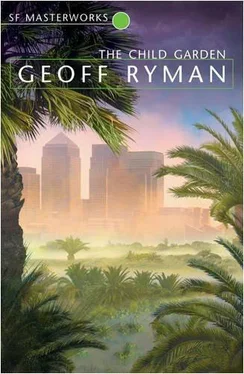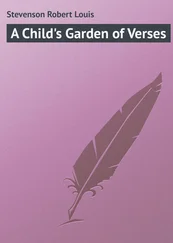‘We live in little boxes, Rolfa,’ Milena said. ‘For us mere is no buying a way out. We don’t have pianos. We don’t have rooms big enough for them.’
‘Then where can I play?’
‘There are practice rooms, in the Zoo.’
‘They won’t let me into them.’ Rolfa began to pace.
Something is going to have to happen, quickly, Milena realised. We won’t be able to live like this for long. Something is going to have to happen with her music.
‘You can always sing,’ said Milena.
‘Where? Where can I sing? If I try to sing here, people ask me to be quiet. And if there’s a Snide after me, I’ve got to keep quiet.’
Cilia did not come bringing supper. Jacob came instead with a message.
‘He is in your old room,’ said Jacob. ‘The tall, thin man. He will not go away. He is sitting on the bed. Cilia was playing Madam Butterfly over and over in her mind. He knew that. I said, Cilia your friends are waiting at the cafe. So she could leave. She asked him to go, and he shook his head. How long he will stay there I don’t know. But I think he will soon come here.’
They had to move again. To move a second time was not fun. It was wearing. They traded rooms with Cilia’s boyfriend, a well known young actor, who made a great show of condescending. Milena did not like being grateful to him.
They spent the night in their new, glum room and did not even light a candle in case the Snide was watching. They spoke in whispers. Rolfa walked back and forth at the foot of the bed.
‘When I was bad, Papa would lock me in the closet,’ she said. ‘It was very dark and I knew there was no one to come for me. So I used to sing to myself in the dark. And it got so that I would do bad things like not make my bed or make a terrible mess in the kitchen, just so that I could be locked away. The dark was the only place I could sing. But here, I can’t even sing. It’s so small, I can hardly move.’
And Milena felt it again, the echo of memory. I’ve done this before, she thought. It was a habit, a pattern, something she could fall into if she didn’t think about it. It was as if she had been snatched up so quickly and hauled into adulthood that part of her self had been left behind. It was as if only the shell remained, the structure. The strange soft creature she once had been was left behind. The child self did not realise what had happened. Perhaps it was still back there, in the past, still talking.
I don’t remember, but I think that I probably talked to the newcomers. I suppose that in the Child Garden the orphans wept for their lost homes, even homes they had hated. Milena suddenly found the idea of homeless children unaccountably moving. I must have sat with them at night in the dark, like this.
And this is a child I am talking to now. Milena understood Rolfa then. Rolfa was still a child. Milena would have to take care of her for a while.
‘Can you sing in silence? Like reading music?’
‘It’s not the same,’ said Rolfa.
She will have to become part of the Consensus, Milena decided. If she becomes part of the Consensus, she can be Placed in the theatrical Estate. They will let her use the practice rooms at least. At least they will pay her, give her money and a place to live. If nothing happens she will go. She will have to go. What is the difference between this and Antarctica? It is still exile. The thought did not come to Milena that she herself was the difference.
That night she couldn’t sleep again. She was trying to think of what she could do. Could she ask Jacob to sing the music that he remembered? Could she coax Rolfa into one of the rooms of the powerful, and persuade her to sing, cold? Milena finally fell asleep, sitting on the floor, only her head and shoulders resting on the bed.
She sat up suddenly some time later, knowing that she had been asleep. It was still dark outside. The counterpane was over her shoulders.
‘I have been in bed forever,’ said Rolfa. ‘Isn’t there something we can do?’
‘There’s a market open now. It’s for stallowners, open early. We could go there!’
They crept down the unlighted stairs of the Shell, clutching on to each other, dreading a tall thin shadow. They slipped through the streets, their hearts pounding. They followed a butcher’s cart, pulled by a huge and plodding white horse with a beautiful white mane. They reached the gas lamps, with their shining cotton wicks, and they saw the heaps of things to buy. Sparrows in cages had been dyed bright colours. There were whole smoked chickens, old furniture, T-shirts with pictures printed on them, musical instruments, and piles of fruit and vegetables.
‘Pooh wants this,’ said Rolfa. ‘Pooh shall have it.’ She bought a pineapple. The stallowner was looking at them.
‘Isn’t it funny how a Bear likes money,’ Rolfa said, sorting coins. Milena felt her mouth go taut with embarrassment and the danger of it. He will remember us, she thought. They left as a corner of the sky was turning silver and the sound of horses’ hooves announced the city was waking up. Streetsweepers in blue uniform nodded hello as they passed.
It became their new routine. Rolfa went to the market in the mornings in the dark. It was her time out. Milena would get up with her, and help her shave in the showers, a candle planted on the floor. Then Milena would go back to bed and lounge in its warmth. That was her time. When the sky was lighter, she would get up and clean the cooker, and undo whatever damage Rolfa had done with her pre-dawn fry-up.
‘I hope you bought a new alcohol cannister,’ she said once, when Rolfa got back. ‘You used this one up.’
‘You mean the cooker won’t work?’ Rolfa asked in dismay. ‘And I got us something special for breakfast.’
‘What is it?’ Milena asked ruefully. ‘Seal?’
‘No. Penguin.’ Rolfa held it up. It still had its feathers and horny feet, but at least it didn’t kick.
‘Well, I hope you can eat it raw.’
‘I suppose it is all right in a salad,’ said Rolfa, still looking crestfallen.
She’d also bought some peaches and some seaweed, and so they had a peach and penguin seaweed salad for breakfast — or rather, Rolfa did. Milena ate a peach and watched Rolfa bite through sinews as thick as her little finger. The sink was full of feathers. Milena smiled.
‘Pooh,’ she pronounced Rolfa, as if knighting her.
After breakfast, Milena would leave Rolfa for the day, reading a book. At the entrance of the Shell, the cast of the play would be waiting. Milena would walk in their midst to rehearsals at the Zoo, protected by a cloud of thought.
Milena learned things about them. She learned that Berowne was in love with the Princess and wanted to be a father. The Princess did not want to carry a baby. Berowne was thinking of carrying the child himself. The King, handsome, kind, faraway, loved nobody, but was one of those people who are, effortlessly, loved. The girls felt warmth and sympathy for him, as well as loving his blond-green curls and luxuriant beard.
They were all so ambitious. They all had such plans — characters they wanted to play, pictures they wanted to paint. Milena, as always, was quiet among them, but for once she was not full of resentment. She was content to go unnoticed. She found she liked being part of a group. And when she did say something, it would sound obvious and banal to her, but the actors would exclaim, ‘Oh, Milena, you’re always so sensible!’ She would understand that it was not an insult. ‘Not like you butterflies,’ she replied once, with a chuckle. There was a kind of quiet acknowledgement on both sides of who she was.
Then one morning, on the walkway, the Princess whispered, ‘Milena. That’s the Snide!’
It was like swimming in the ocean and seeing a shark.
Читать дальше












